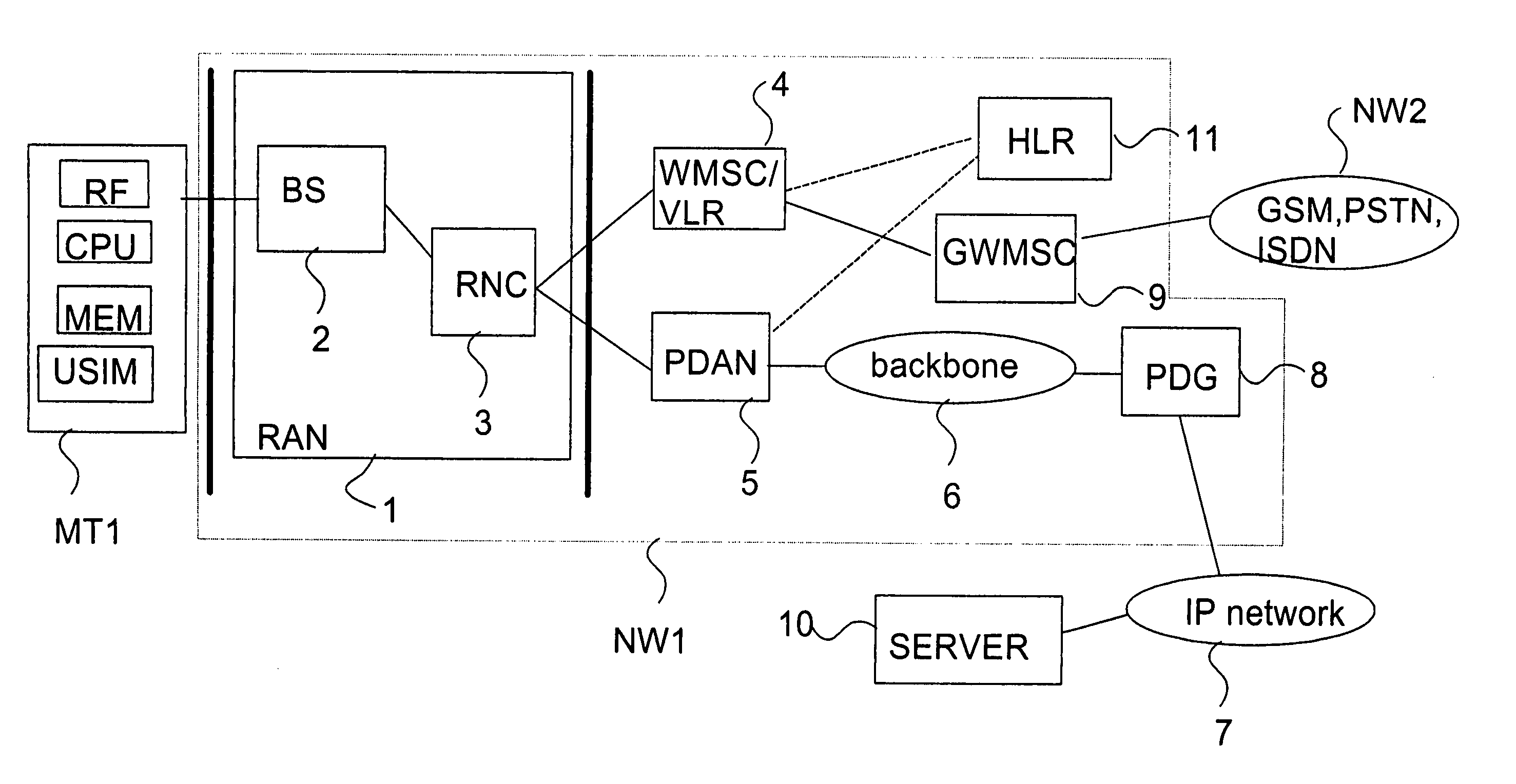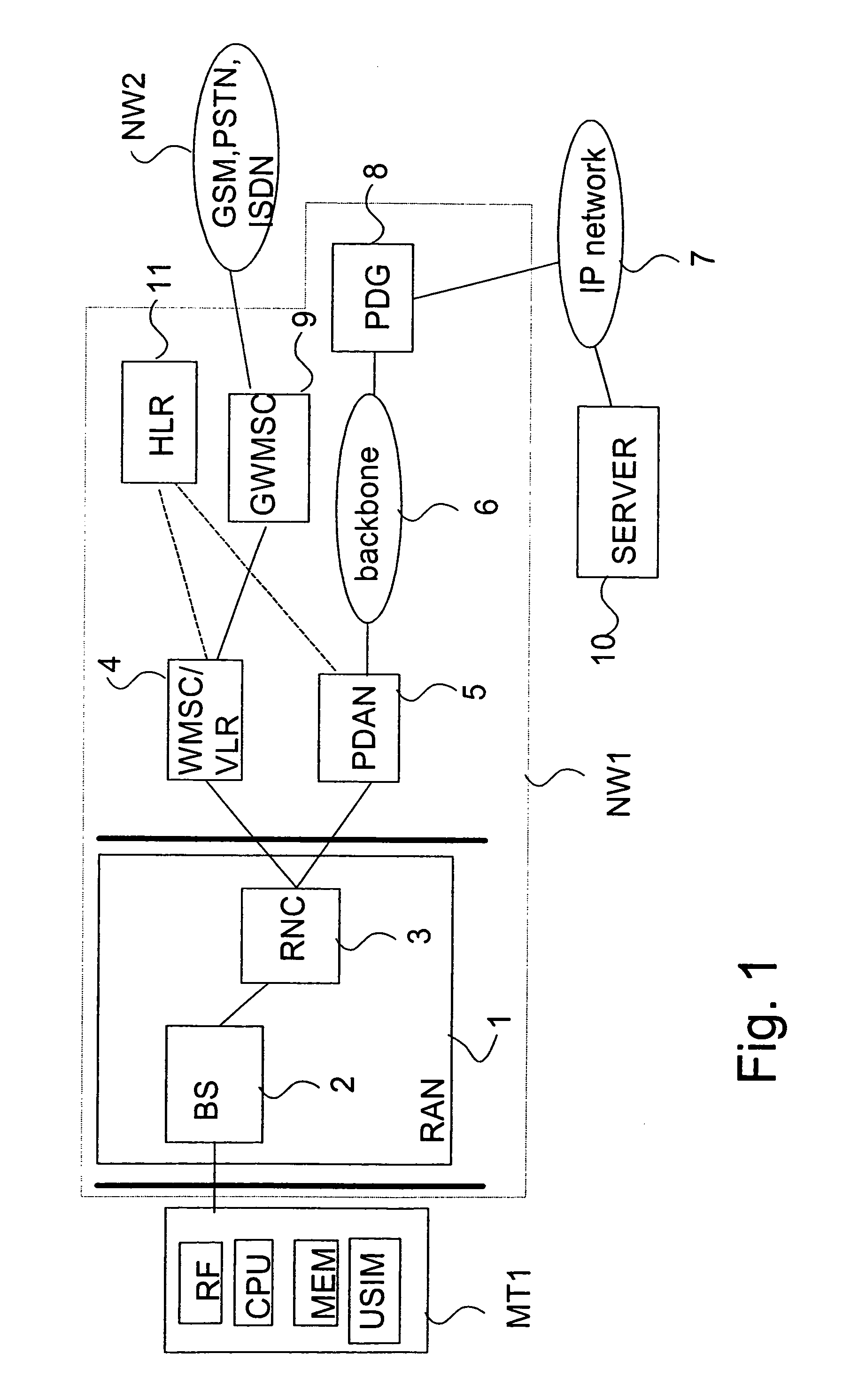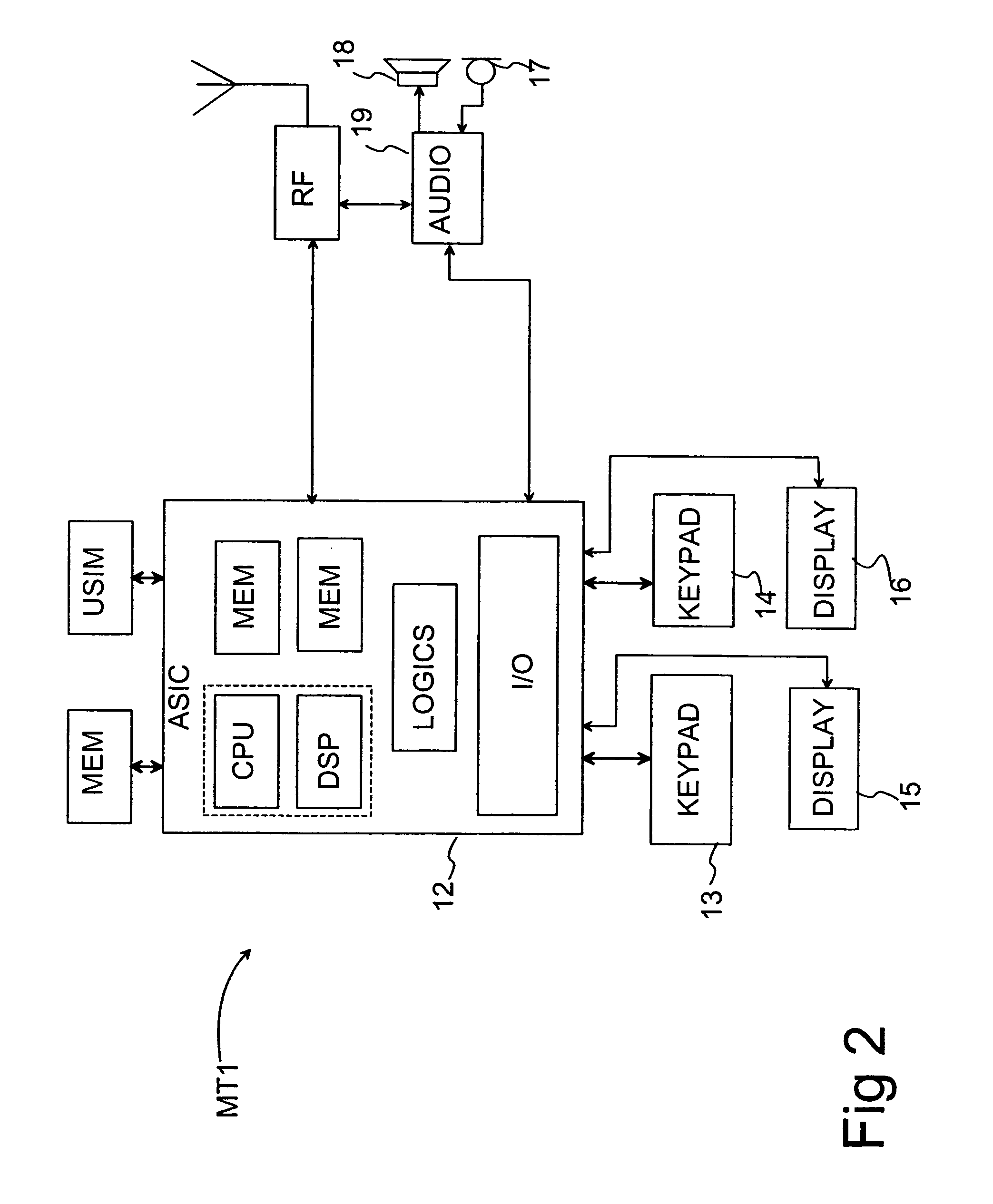Method in a communication system, a communication system and a communication device
a communication system and communication system technology, applied in the field of communication systems, can solve the problems of reducing the accuracy of data transfer, affecting and reducing the accuracy of data transmission, so as to improve the performance of multimedia streaming and adapt to the effect of efficiently using the delta bandwidth
- Summary
- Abstract
- Description
- Claims
- Application Information
AI Technical Summary
Benefits of technology
Problems solved by technology
Method used
Image
Examples
Embodiment Construction
[0069] In the following description of a preferred embodiment of the invention, a UMTS type mobile communication system will be used as an example; however, it will be obvious for anyone skilled in the art that the invention is not limited solely to this system but it can also be applied in other communication systems (e.g. EGPRS) in which it is possible to determine various QoS levels for communication.
[0070] In the following the session description protocol (SDP) will be described in more detail.
[0071] On the Internet multicast backbone (Mbone), a session directory tool is used to advertise multimedia conferences and communicate the conference addresses and media-specific information necessary for participation. The multicast backbone is the part of the Internet that supports IP (Internet Protocol) multicast, and thus permits efficient many-to-many communication. It is used extensively for multimedia conferencing. Such conferences usually have the property that tight coordinatio...
PUM
 Login to View More
Login to View More Abstract
Description
Claims
Application Information
 Login to View More
Login to View More - R&D
- Intellectual Property
- Life Sciences
- Materials
- Tech Scout
- Unparalleled Data Quality
- Higher Quality Content
- 60% Fewer Hallucinations
Browse by: Latest US Patents, China's latest patents, Technical Efficacy Thesaurus, Application Domain, Technology Topic, Popular Technical Reports.
© 2025 PatSnap. All rights reserved.Legal|Privacy policy|Modern Slavery Act Transparency Statement|Sitemap|About US| Contact US: help@patsnap.com



